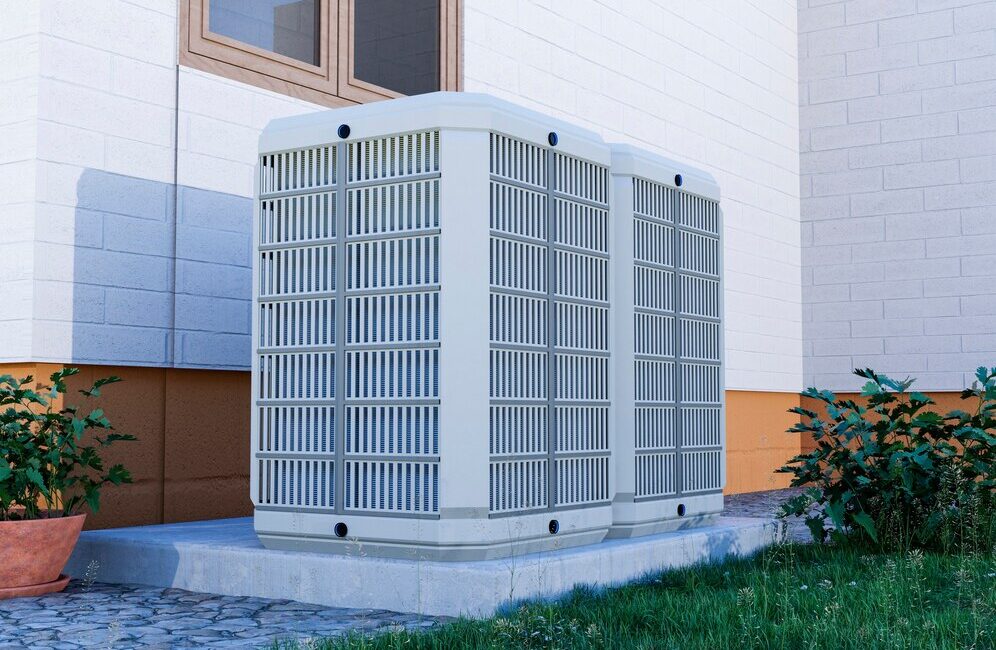When it comes to heating and cooling your home, an efficient and reliable HVAC system is essential. While traditional furnaces and air conditioning units have been popular choices for homeowners for many years, heat pumps have gained recognition as a versatile and energy-efficient alternative.
Heat pumps operate by transferring heat from one location to another, making them capable of both heating and cooling your home. But how exactly does this work, and what are the advantages of using a heat pump over other types of HVAC systems? In this article, we’ll dive deeper into the mechanics of heat pumps, explaining how they function and the key benefits they offer to homeowners.
Whether you’re considering switching to a heat pump system or need expert advice on maintaining your existing one, our team is here to help. With our extensive experience in installing and servicing heat pumps, we can ensure your home remains comfortable, no matter the season.
The Inner Workings of Heat Pumps
To fully appreciate heat pumps’ benefits, it’s crucial to understand the science behind their operation. Heat pumps use a refrigerant—a substance with unique thermodynamic properties—to facilitate the heat transfer process. The refrigerant circulates between the indoor and outdoor components of the heat pump system, absorbing and releasing heat as it passes through various stages of compression and expansion.
The cycle begins with the refrigerant in its liquid form at a low temperature and pressure. When it enters the outdoor unit, the refrigerant absorbs heat from the outside air, causing it to evaporate into a gas. The gaseous refrigerant then flows into the compressor, where it is pressurized and heated further. The hot vapor then enters the indoor unit, releasing the collected heat to warm your home. Finally, the refrigerant is cooled and returned to its liquid state, and the cycle begins again.
During the cooling season, a device called the reversing valve reverses this process. The heat pump now absorbs heat from the indoor air and releases it outdoors, effectively cooling your home in the same way an air conditioner would.
Types of Heat Pumps
Now that you understand the basic operational principles of a heat pump, let’s explore the various types available to homeowners:
- Air-Source Heat Pumps: These systems transfer heat between the indoor living space and outdoor air. They are the most common type of heat pump and are suitable for mild to moderate climate regions.
- Ground-Source (Geothermal) Heat Pumps: Also known as geothermal heat pumps, these systems extract heat from the ground or a water source, such as a pond or well. They generally have higher installation costs than air-source systems but can offer greater energy efficiency due to the relatively constant temperatures found underground.
- Ductless Mini-Split Heat Pumps: These systems provide heating and cooling to individual rooms or zones within your home without the need for ductwork. They are a popular choice for homeowners looking to add supplemental heating or cooling to specific areas or to retrofit older homes without existing ductwork.
Energy Efficiency and Cost Savings
One of the main advantages of heat pumps is their energy efficiency. Because they transfer heat rather than generating it, heat pumps typically use significantly less energy than traditional furnaces and air conditioning systems. This reduced energy consumption can translate to considerable cost savings on your monthly utility bills.
Another factor contributing to heat pumps’ energy efficiency is their lack of combustion. Combustion-based heating systems, such as furnaces and boilers, can lose a significant amount of heat through exhaust gases. In contrast, heat pumps do not rely on combustion, resulting in a more efficient heat transfer process.
Dual-Function Convenience
One of the standout features of heat pumps is their ability to provide both heating and cooling throughout the year. This dual-function capability simplifies your home’s HVAC system by consolidating two traditionally separate components – a furnace and an air conditioner – into one versatile unit.
This not only reduces installation and maintenance costs, but it also means that you’ll only have a single unit to keep your home comfortable, no matter the season. For those living in milder climates, this all-in-one solution can be particularly beneficial and cost-effective.
Choosing the Right Heat Pump for Your Home
Selecting the right heat pump system involves evaluating various considerations, including your home’s size and layout, your heating and cooling needs, and your desired energy efficiency levels. Our professionals can help you navigate the process, ensuring that you choose the best heat pump for your unique situation.
At Bears Home Solutions, we’re committed to providing top-notch HVAC services in Grand Forks, and beyond, including heat pump installation, repair, and maintenance services. Our experienced technicians can help you decide whether a heat pump is the right choice for your home and, if so, expertly install and care for your new HVAC system. Get in touch with us today to discover how heat pumps can transform your home’s comfort and efficiency!

